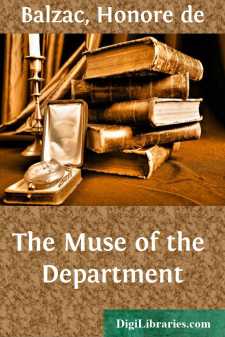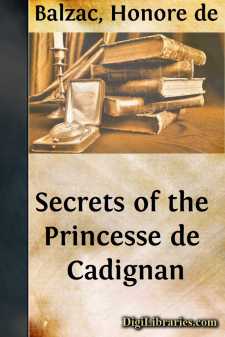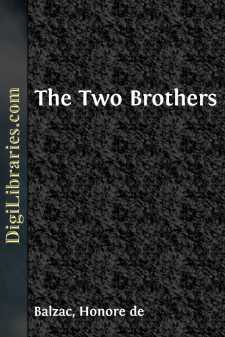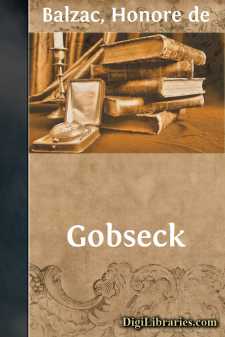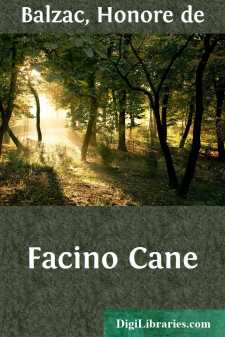Categories
- Antiques & Collectibles 13
- Architecture 36
- Art 48
- Bibles 22
- Biography & Autobiography 813
- Body, Mind & Spirit 142
- Business & Economics 28
- Children's Books 17
- Children's Fiction 14
- Computers 4
- Cooking 94
- Crafts & Hobbies 4
- Drama 346
- Education 46
- Family & Relationships 57
- Fiction 11829
- Games 19
- Gardening 17
- Health & Fitness 34
- History 1377
- House & Home 1
- Humor 147
- Juvenile Fiction 1873
- Juvenile Nonfiction 202
- Language Arts & Disciplines 88
- Law 16
- Literary Collections 686
- Literary Criticism 179
- Mathematics 13
- Medical 41
- Music 40
- Nature 179
- Non-Classifiable 1768
- Performing Arts 7
- Periodicals 1453
- Philosophy 64
- Photography 2
- Poetry 896
- Political Science 203
- Psychology 42
- Reference 154
- Religion 513
- Science 126
- Self-Help 84
- Social Science 81
- Sports & Recreation 34
- Study Aids 3
- Technology & Engineering 59
- Transportation 23
- Travel 463
- True Crime 29
Sort by:
by:
Honore de Balzac
THE MUSE OF THE DEPARTMENT On the skirts of Le Berry stands a town which, watered by the Loire, infallibly attracts the traveler's eye. Sancerre crowns the topmost height of a chain of hills, the last of the range that gives variety to the Nivernais. The Loire floods the flats at the foot of these slopes, leaving a yellow alluvium that is extremely fertile, excepting in those places where it has...
more...
by:
Honore de Balzac
COLONEL CHABERT "HULLO! There is that old Box-coat again!" This exclamation was made by a lawyer's clerk of the class called in French offices a gutter-jumper—a messenger in fact—who at this moment was eating a piece of dry bread with a hearty appetite. He pulled off a morsel of crumb to make into a bullet, and fired it gleefully through the open pane of the window against which he was...
more...
by:
Honore de Balzac
A MAN OF BUSINESS The word lorette is a euphemism invented to describe the status of a personage, or a personage of a status, of which it is awkward to speak; the French Academie, in its modesty, having omitted to supply a definition out of regard for the age of its forty members. Whenever a new word comes to supply the place of an unwieldy circumlocution, its fortune is assured; the word lorette has...
more...
by:
Honore de Balzac
CHAPTER I. THE LAST WORD OF TWO GREAT COQUETTES After the disasters of the revolution of July, which destroyed so many aristocratic fortunes dependent on the court, Madame la Princesse de Cadignan was clever enough to attribute to political events the total ruin she had caused by her own extravagance. The prince left France with the royal family, and never returned to it, leaving the princess in Paris,...
more...
by:
Honore de Balzac
CHAPTER I In 1792 the townspeople of Issoudun enjoyed the services of a physician named Rouget, whom they held to be a man of consummate malignity. Were we to believe certain bold tongues, he made his wife extremely unhappy, although she was the most beautiful woman of the neighborhood. Perhaps, indeed, she was rather silly. But the prying of friends, the slander of enemies, and the gossip of...
more...
by:
Honore de Balzac
THE ELIXIR OF LIFE One winter evening, in a princely palace at Ferrara, Don Juan Belvidero was giving a banquet to a prince of the house of Este. A banquet in those times was a marvelous spectacle which only royal wealth or the power of a mightly [sic] lord could furnish forth. Seated about a table lit up with perfumed tapers, seven laughter-loving women were interchanging sweet talk. The white marble...
more...
by:
Honore de Balzac
CHAPTER I On a cold morning in December, towards the close of the year 1612, a young man, whose clothing betrayed his poverty, was standing before the door of a house in the Rue des Grands-Augustine, in Paris. After walking to and fro for some time with the hesitation of a lover who fears to approach his mistress, however complying she may be, he ended by crossing the threshold and asking if Maitre...
more...
by:
Honore de Balzac
GOBSECK It was one o'clock in the morning, during the winter of 1829-30, but in the Vicomtesse de Grandlieu's salon two persons stayed on who did not belong to her family circle. A young and good-looking man heard the clock strike, and took his leave. When the courtyard echoed with the sound of a departing carriage, the Vicomtesse looked up, saw that no one was present save her brother and a...
more...
by:
Honore de Balzac
TRANSLATORS PREFACE When, in March, 1832, the first volume of the now famous Contes Drolatiques was published by Gosselin of Paris, Balzac, in a short preface, written in the publisher's name, replied to those attacks which he anticipated certain critics would make upon his hardy experiment. He claimed for his book the protection of all those to whom literature was dear, because it was a work of...
more...
by:
Honore de Balzac
FACINO CANE I once used to live in a little street which probably is not known to you—the Rue de Lesdiguieres. It is a turning out of the Rue Saint-Antoine, beginning just opposite a fountain near the Place de la Bastille, and ending in the Rue de la Cerisaie. Love of knowledge stranded me in a garret; my nights I spent in work, my days in reading at the Bibliotheque d'Orleans, close by. I lived...
more...


